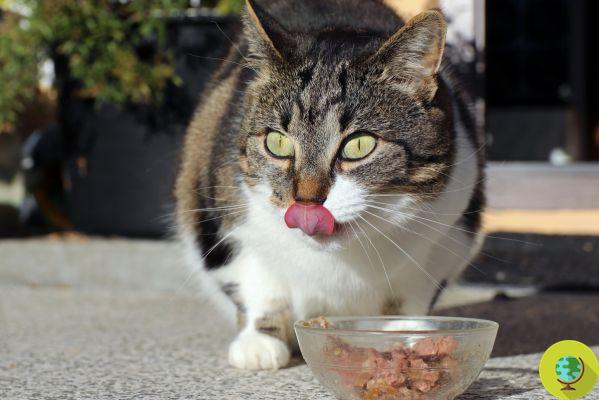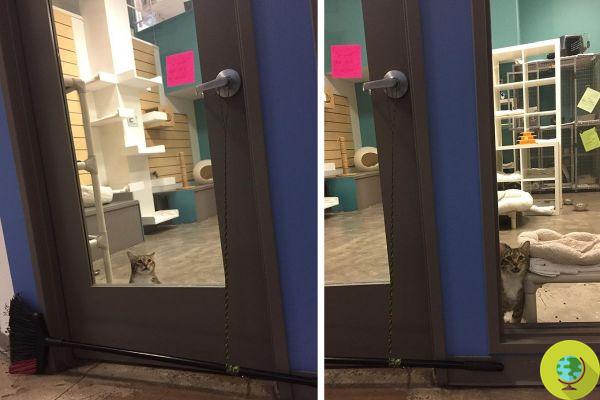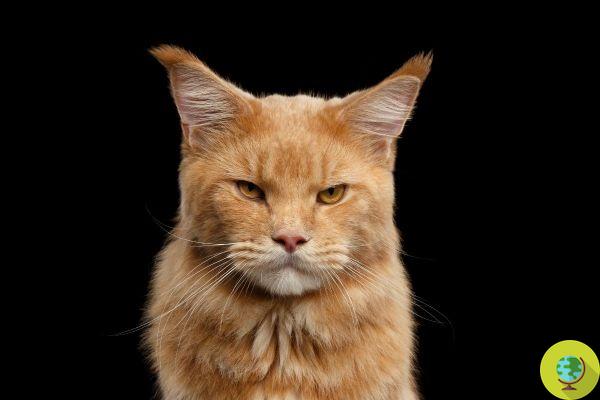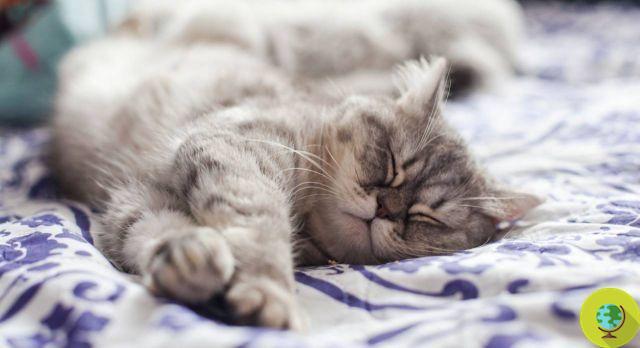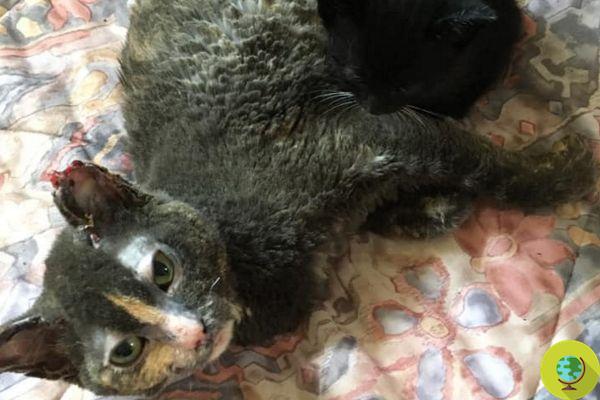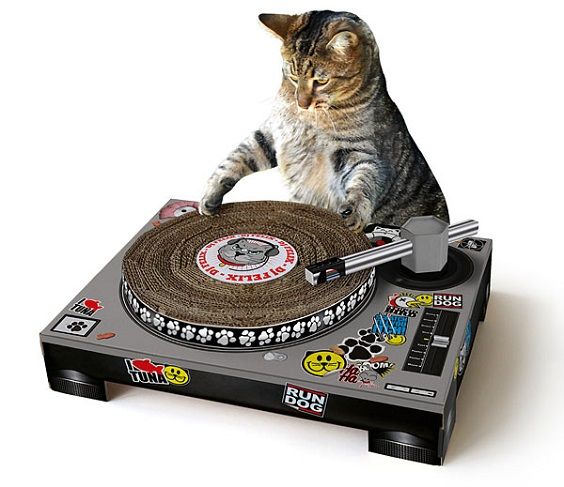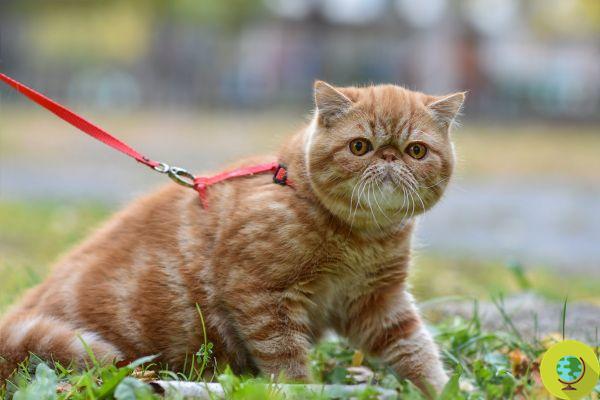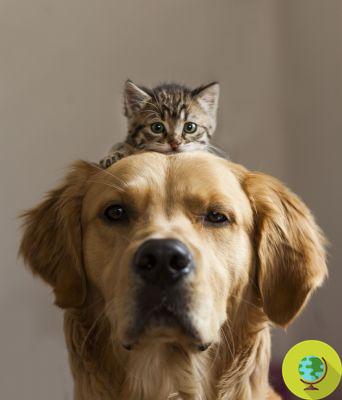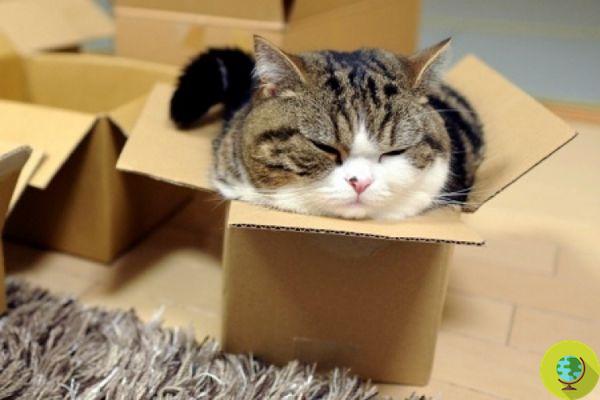
What do cats think? Do they have dreams and memories like we do? We have tried to answer some curiosities about these animals
He is about to end up run over, his mother saves himWhat do cats think? Do they have dreams and memories like we do? We have tried to answer some curiosities about one of the most mysterious animals
Is it possible to know what cats think, enter their mind and investigate their thoughts? Although they are among the most popular pets in the world, what we know about their psychology is relatively little - especially in relation to the world of dogs, about which there is much more information. This disparity in information is largely due to practical problems: in fact, while dogs are easy to study (even in an environment other than what they are used to, such as in a laboratory, they will tend to replicate their usual behaviors), cats let themselves be influenced by their environment - so a cat in a laboratory will not behave as if it were in its familiar environment. In addition to the practical difficulty of studying the behavior of felines, however, there is also a stigma that has not yet been completely overcome: for too many centuries cats have been unjustly connected to witchcraft or the devil, considered carriers of black magic and therefore burned and estranged. without them having any fault.
A criticism often addressed to felines is that they "exploit" the company of humans to get food and cuddles, but that in reality they do not have a sincere affection towards them. Of course, this isn't true at all: cats get attached to humans, as well as other animals - even if, perhaps, they don't show it as expansively as dogs do. For example, think of all cats who have the habit of sleeping in bed with their owners alone or those who, grown up with other kittens, become their favorite playmates. Certainly, it must be said that felines do not like to be picked up, hugged and cuddled - and we must not take it for this behavioral trait: cats are not people, they do not have the same needs for physical contact as we do.
(Read also: Is your cat aggressive and not very affectionate? Follow these 3 very simple guidelines developed by scientists)
Index
Do cats feel emotions?
According to scientists, felines can also experience a kind of "depression" - or, rather, a deep sadness. Being able to understand if and when our cat is sad is a difficult task, since his behavior changes almost imperceptibly: an unhappy cat stays still in his corner and does not do much to show his sadness. As we have said, changes in the environment around the cat or in our behavior can cause new emotions in him and create havoc in his soul: whoever lives with a cat and has started working from home due to the pandemic, will certainly have noticed signs of discomfort in the animal, not accustomed to the human presence in the apartment all day.
Feline memories and dreams
Cats learn from experience, remember what they have done and from memories they draw useful information for their survival: for example, if the cat gets burned by touching the oven or the hot plate of the induction cooker, it will avoid that area of the kitchen because associated with a painful experience. Similarly, felines remember the taste of the foods consumed and are able to associate them with particular moments of the day or bowls, as demonstrated by this experiment conducted in Japan a few years ago. In addition to remembering the experiences made, cats can also "relive" them in the form of a dream: their brain structure is similar to ours in this sense, and therefore allows you to retrace the events of the day in the form of a dream. That's why it's not so strange to see a cat kick while it sleeps - maybe it's dreaming of running or chasing prey. What cats lack, of course, is a conception of the future - due to the lack of frontal lobes in their brains. In practice, they do not have the ability to make long-term plans, to look beyond the present moment: their thoughts are all aimed at satisfying basic needs such as food, sleep, shelter, sexual appetites.
Cats and us
In other words, we should stop considering cats as human beings, and project onto them attributes that relate to us: cats are animals and their life takes place beyond us. Of course, living with us conditions their way of living and acting, but in essence these animals always remain mysterious and inscrutable creatures. Is there anything we can learn from them? We could make our way of living perpetually in the present, without worrying about the future, but also their fidelity to their own habits and rituals - we who too often tend to live a life of excesses and irregularities.
Follow your Telegram | Instagram | Facebook | TikTok | Youtube
Source: The Guardian
We also recommend:
- Cats also love to slip into "imaginary" boxes
- Cat-proof Christmas tree, the tricks to make one that lasts until the Epiphany
- In order not to make your cat hate you, you absolutely must avoid doing these 6 things




